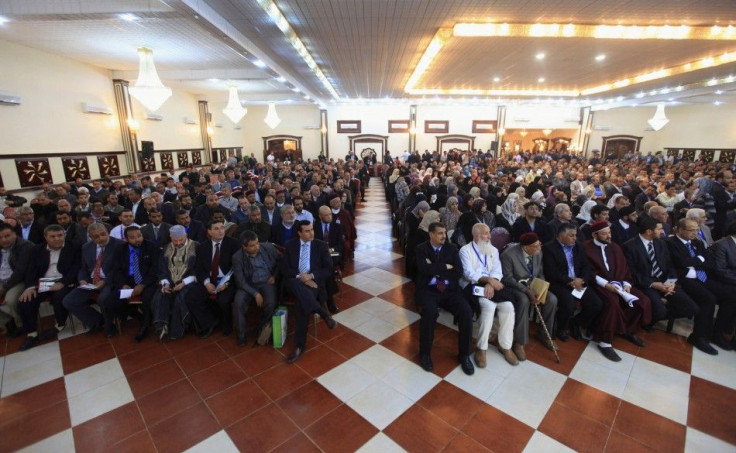Libya Bans Religious, Tribal, Ethnic Political Parties

Libya has banned all political parties organized along religious, ethnic and tribal lines, the interim government announced Wednesday. The move was immediately condemned by Islamic leaders and federalists.
A spokesman for the ruling National Transitional Council, Mohammed al-Harizy, said the government enacted the law Tuesday in order to safeguard national unity. The NTC also outlawed foreign campaign funding.
Parties shouldn't be based on ethnic or religious ideologies, Harizy continued. We don't want the government to be divided by these ideological differences.
The move comes during the run-up to general elections due by June 19, when a 200-member assembly will be chosen and charged with writing a new constitution and forming a government.
It remains uncertain if the new law will affect the Muslim Brotherhood's Freedom and Development Party founded in March, and it is unclear what exactly a ban means. The text of the law has yet to be published.
This is not democracy, Mohamad Gaira, spokesman for the Freedom and Development Party, told Al-Jazeera.
We don't understand this law. ... It could mean anything, or it could mean that none of us can participate in the election, he continued.
We are a nationalist party and Islam is our religion. This law is unacceptable and only suits liberals.
The leader of the Freedom and Development Party called for the NTC to clarify the law's intentions, and cited the fact that Libya is already known to be a conservative state and its 6 million people are almost exclusively Sunni Muslims.
This kind of clause is only useful in countries where there [exist] many religions, not in Libya where most people are religious Muslims, Mohamad Sawan told Reuters.
The law needs to be reviewed by the NTC and if it's not changed, we would have to protest it, Sawan added.
The coming elections will be the first since the NATO-led overthrow of Col. Moammar Gadhafi last year. Gadhafi was killed by rebel forces in October, after eight months of conflict.
The Freedom and Development Party is Libya's strongest and most organized political organization, and is likely to wield considerable influence in a nation where Islamists, like all dissidents, were suppressed for 42 years under Gadaffi rule.
The NTC has made it known that Libya will be governed in accordance with Islamic religious law, or sharia, but the specific role of sharia will be hammered out when the constitution is written.
Regional and ethnic divisions are prominent in Libya, as exemplified in March when tribal leaders in the eastern part of the country declared semi-autonomy. Ethnic Tabu leaders in the south have also threatened to declare independence, German news organization Deutsche Welle reports.
Islamic parties have enjoyed considerable success in other post-uprising elections in Egypt, Morocco, and Tunisia, and may also perform well in Libyan elections, pending the outcome of the new law.
© Copyright IBTimes 2024. All rights reserved.











